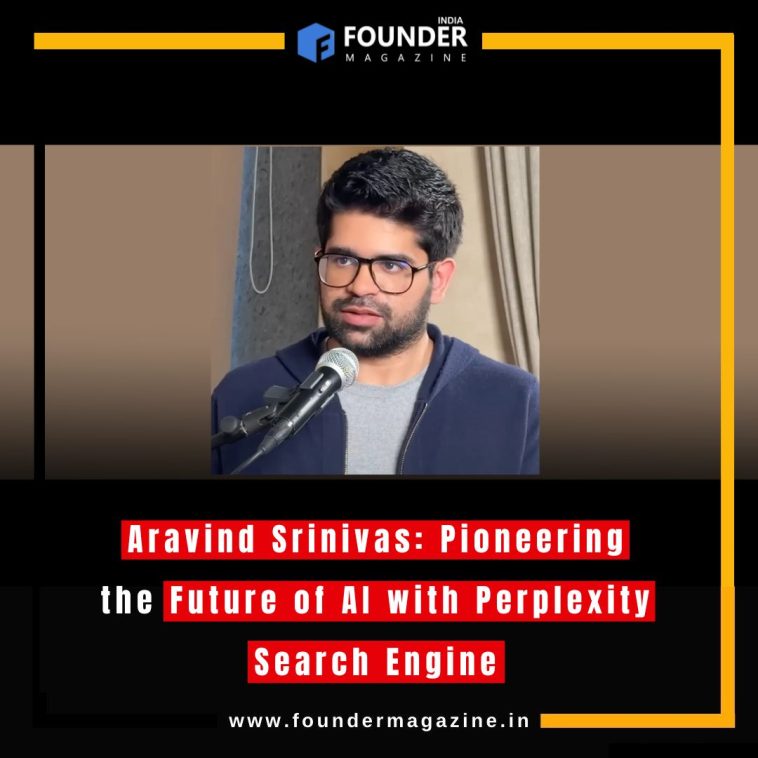In the ever-evolving world of technology, artificial intelligence (AI) has emerged as a game-changer, influencing industries, enhancing user experiences, and revolutionizing digital tools. One of the key figures in this AI-driven transformation is Aravind Srinivas, the co-founder and CEO of Perplexity, an innovative AI-powered search engine that is redefining how users interact with information online.
Aravind Srinivas has always been passionate about AI’s potential to solve real-world problems. His journey into the world of artificial intelligence began with his academic background in computer science, which led him to explore the boundless possibilities that AI offers. Armed with a deep understanding of machine learning, data analysis, and human-computer interaction, Srinivas co-founded Perplexity with a vision to enhance the search experience by leveraging the latest AI advancements.
Perplexity is designed to break away from traditional search engines by incorporating cutting-edge AI models to deliver highly relevant, personalized, and accurate results. Unlike conventional search engines that rely heavily on keywords and algorithms to index pages, Perplexity uses AI to better understand the context behind search queries, delivering responses that feel more intuitive and human-like. By focusing on deep learning and natural language processing (NLP), Perplexity is able to decipher the user’s intent with remarkable precision, offering answers that go beyond simple links to create a truly engaging search experience.
Srinivas’s approach with Perplexity is grounded in a deep commitment to improving user experience. “AI has the power to create a more intuitive and conversational way for people to find what they need online,” he states. The use of conversational AI in Perplexity is designed to simulate human-like interactions, providing users with a seamless, informative experience rather than the traditional list of links. This breakthrough concept of using AI to improve search relevancy is what sets Perplexity apart from competitors in the crowded search engine market.
Under Srinivas’s leadership, Perplexity has made impressive strides in the AI space. The company has garnered significant attention for its ability to quickly and accurately generate responses to user queries. This innovation is particularly evident in industries like e-commerce, content creation, and education, where AI-driven search engines can help users find exactly what they need with minimal effort. For instance, e-commerce businesses can harness Perplexity’s AI capabilities to improve product discovery, while educational platforms can use it to offer personalized learning paths for students.
In addition to his technical expertise, Srinivas is known for his forward-thinking leadership and ability to build teams that foster innovation. His experience as a co-founder of other tech ventures has enabled him to cultivate a culture at Perplexity where creativity, problem-solving, and cutting-edge research are at the forefront. This entrepreneurial mindset has been crucial in helping the company maintain its competitive edge while adapting to the rapidly changing AI landscape.
Looking to the future, Aravind Srinivas is determined to continue evolving Perplexity, integrating more advanced AI models and expanding its applications across various sectors. His ambition is clear: to make AI-powered search engines more adaptive, responsive, and accessible to everyone. By focusing on solving complex problems with simple, intuitive solutions, Srinivas and his team are positioning Perplexity to play a key role in the next generation of AI technologies.
Aravind Srinivas’s journey with Perplexity is a testament to the transformative potential of AI. As the CEO of a rapidly growing AI-powered company, he is not only contributing to the evolution of search engines but also shaping the future of how humans interact with technology. With a blend of innovation, leadership, and passion for AI, Srinivas is undoubtedly a trailblazer in the tech world, and his work with Perplexity is set to leave a lasting impact on the AI industry.


